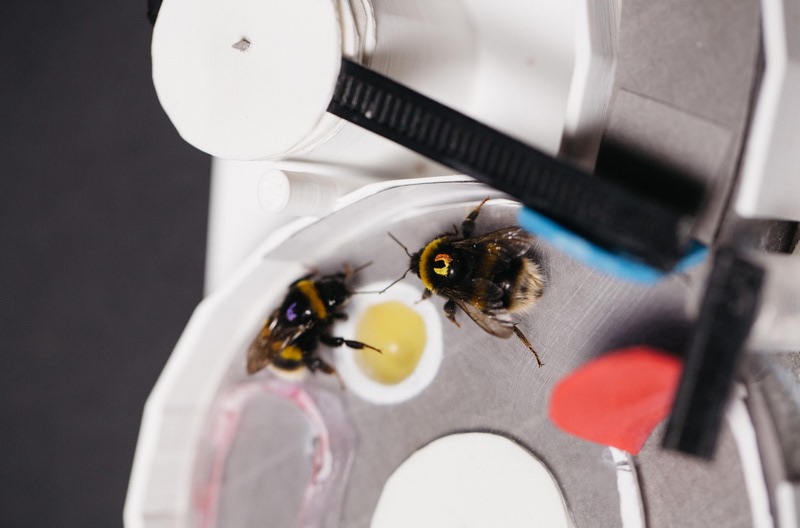
Bumblebees can teach others new behaviors too complex for them to learn alone, suggests a paper published in Nature that essentially posits humans and bees share knowledge in exactly the same way.
In the study, a bee taught to solve a puzzle for a sugary reward was able to train other bees to complete the task, providing evidence that bees can socially learn some behaviors at a level of complexity previously thought to be unique to humans and our ancestors.
Culture is a word that’s thrown around quite a lot, but at the root of it is the designation of a particular behavior that is socially learned and persists over time.
Increasing evidence suggests that, like human culture, animal culture can be cumulative, with sequential behaviors building on previous ones. Human cumulative culture involves behaviors so complex that they lie beyond the capacity of any individual to independently discover during their lifetime.
However, this behavior has not yet been demonstrated in an invertebrate species, generally considered at the bottom of the barrel of intelligent life.
“You and I are both, biologically speaking, African apes, but I am writing this on a laptop in Cornwall, and you might be reading it in Colombo, Caracas, or Canberra,” writes co-author of the study Alex Thorton. “This reflects one of the most remarkable attributes of the human species—the progressive improvement of skills and technologies as innovations spread and are built on.”
Bumblebees, however, are extremely social insects that have proven themselves capable of acquiring non-natural behaviors, such as string-pulling and ball-rolling, via social learning in order to gain rewards.
Alice Bridges, Lars Chittka, Alex Thorton, and their colleagues set up a difficult task to investigate whether bumblebees are capable of learning more complex behaviors from others in the colony.
MORE STORIES OF ANIMAL SMARTS: Clever Cockatoos Craft 3-Piece Tool Set to Extract Fruit – Becoming Only 4th Animal Species to Do So
They designed a two-step puzzle box in which the bees first must move an obstacle to allow a rotating lid to be opened, revealing a sucrose reward. Members from three separate colonies were given 24 days (a sizeable chunk of a bee’s life) to work this out, but not a single one succeeded independently through trial and error.
Indeed, it took around two days to train demonstrator bees to complete the task, often requiring a reward at the first step.
ALSO CHECK OUT: 5 Experiments Proving Invertebrates Are Much More Aware than We Think
“Imagine you dropped some children on a deserted island, they might with a bit of luck survive,” said Dr. Chittka, a professor of sensory and behavioral ecology. “But they would never know how to read or to write because this requires learning from previous generations.”
However, untrained bees quickly learned to open the two-step box from these demonstrators without needing a reward after the first step. The findings provide evidence that bumblebees are capable of social learning and possibly cultural transmission.
WATCH the bees in action below…
BUZZ This Story Off To Other Members Of Your Colony…



















